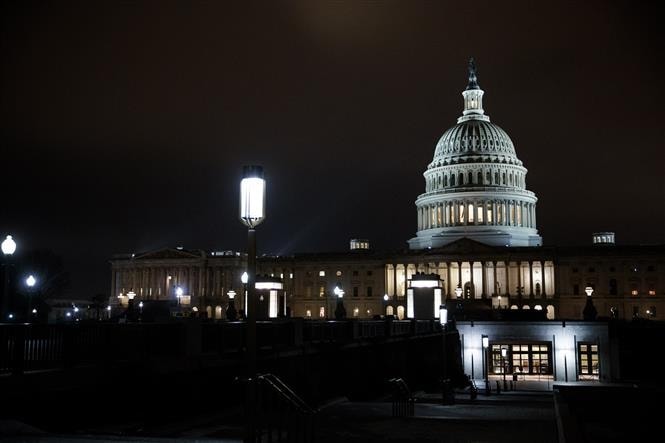The US House of Representatives has rejected a funding bill introduced by Democratic and Republican leaders, putting the US government once again at risk of a shutdown.

If the bill is passed, the US government will be granted funding until mid-March 2025 to maintain the federal budget at its current level of about $6.2 trillion, providing funding for military programs, air traffic controllers, and federal oversight agencies. However, with 174 votes in favor and 235 votes against, the US House of Representatives on December 19 (local time) rejected the bill. So far, the US Congress has not had a clear plan to prevent the risk of a US government shutdown.
If lawmakers fail to enact all or some of the appropriations bill, many government operations would come to a halt, resulting in a full or partial government shutdown until Congress acts. However, the government would continue to operate essential functions.
Each federal agency has a contingency plan that outlines which functions will continue during the shutdown and which will stop, as well as how many employees will continue to work and how many will be furloughed until the shutdown ends.
The Impact on People When the US Government Shuts Down
With many federal employees furloughed during the shutdown, many public services will be suspended or delayed, disrupting people's daily lives. Shortages of aviation security and air traffic control personnel will increase flight delays. Immigration courts may close, creating a backlog. Food and Drug Administration (FDA) food safety inspections may be disrupted. Construction on transportation facilities nationwide may be delayed. Many national parks will be closed, although some will remain accessible with limited visitor services.
However, Social Security payments to vulnerable members of society, such as seniors and people with disabilities, will still be distributed. The post office will also operate normally. Some states will use their own funds to keep some national parks open.
How will government employees in the US be affected?
When the government shutdown occurred, millions of federal employees and military personnel went without pay until the shutdown ended.
However, “essential” employees working in the fields of public safety or national security will continue to work. On the contrary, non-essential employees will be furloughed or temporarily suspended from work.
Still, both groups will have to dip into their savings or find other ways to continue spending, not only until the shutdown ends, but also until the government has money to pay its bills. The number of workers affected will depend on whether the government is shut down completely or partially. If some appropriations bills are passed on time, the respective federal agencies will have their budgets approved and continue operating as usual, resulting in only a partial shutdown.
With the government shut down, government contractors face an even worse prospect. “Unsecured” contractors will not get paid until the government reopens. The number of workers employed by contractors who provide services to NASA, the Department of Homeland Security, the Federal Aviation Administration, and other federal agencies is in the millions.
How the US government shutdown affects the economy
On a national scale, a government shutdown could have far-reaching economic consequences, acting as a drag on growth and creating uncertainty, especially if prolonged. It could lead to higher unemployment and borrowing costs, while slowing gross domestic product (GDP) growth. It is estimated that each week the government is shut down could cost the U.S. economy up to $6 billion.
The shutdown also made it difficult to gauge the health of the economy. The Bureau of Labor Statistics stopped releasing data, such as key inflation and unemployment figures, making it difficult for the Federal Reserve and investors to understand the economy and make decisions.
Basic business operations across the country will also be affected. The US government may suspend loan programs, which will significantly affect business operations. On the other hand, starting new businesses and merging businesses will also become more difficult when government agencies do not have enough staff to process applications.